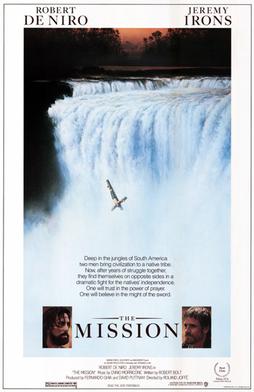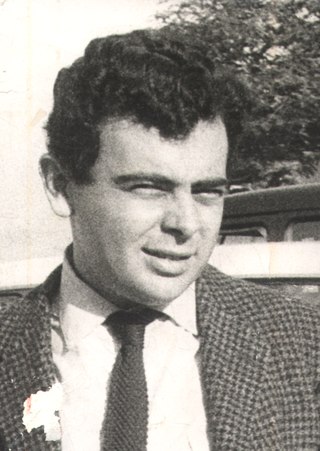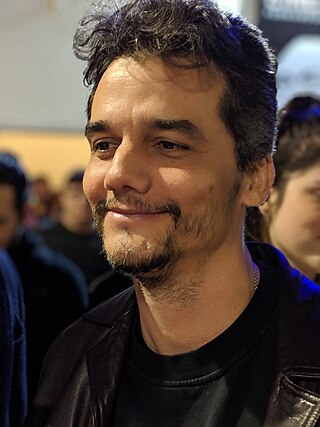A list of films produced in the Cinema of Portugal ordered by year of release in the 1940s. For an alphabetical list of Portuguese films see Category:Portuguese films
A list of films produced in the Cinema of Portugal ordered by year of release in the 1940s. For an alphabetical list of Portuguese films see Category:Portuguese films
| Title | Director | Cast | Genre | Notes | ||
|---|---|---|---|---|---|---|
| 1940 | ||||||
| João Ratão | Jorge Brum do Canto | Drama | ||||
| 1941 | ||||||
| O Pai Tirano (The Tyrant Father) | António Lopes Ribeiro | Comedy | ||||
| 1942 | ||||||
| Ala-Arriba! | José Leitão de Barros | |||||
| Aniki-Bóbó | Manoel de Oliveira | |||||
| O Pátio das Cantigas (Songs' Yard) | Francisco Ribeiro | |||||
| 1943 | ||||||
| O Costa do Castelo | Arthur Duarte | |||||
| 1944 | ||||||
| A Menina da Rádio | Arthur Duarte | |||||
| 1945 | ||||||
| A Vizinha do Lado | António Lopes Ribeiro | |||||
| Sonho de Amor | Carlos Porfírio | |||||
| Três Dias Sem Deus | Bárbara Virgínia | |||||
| 1946 | ||||||
| Camões | José Leitão de Barros | |||||
| 1947 | ||||||
| O Leão da Estrela (Estrela's Lion) | Arthur Duarte | |||||
| Three Mirrors | Ladislao Vajda | Virgílio Teixeira, Paola Barbara, João Villaret | Mystery drama | Co-production with Spain | ||
| 1948 | ||||||
| Fado, História d'uma Cantadeira | Perdigão Queiroga | |||||
| Um Grito na Noite | Carlos Porfírio | |||||
| 1949 | ||||||
| Vendaval Maravilhoso | José Leitão de Barros | |||||

Dubbing is a post-production process used in filmmaking and video production, often in concert with sound design, in which additional or supplementary recordings (doubles) are lip-synced and "mixed" with original production sound to create the finished soundtrack.

City of God is a 2002 Brazilian epic action crime film directed by Fernando Meirelles and co-directed by Kátia Lund. Bráulio Mantovani's script is adapted from the 1997 novel of the same name written by Paulo Lins, but the plot is also loosely based on real events. It depicts the growth of organized crime in the Cidade de Deus suburb of Rio de Janeiro, between the end of the 1960s and the beginning of the 1980s, with the film's closure depicting the war between the drug dealer Li'l Zé and vigilante-turned-criminal Knockout Ned. The tagline is "If you run, the beast catches you; if you stay, the beast eats you."

The Mission is a 1986 British period drama film about the experiences of a Jesuit missionary in 18th-century South America. Directed by Roland Joffé and written by Robert Bolt, the film stars Robert De Niro, Jeremy Irons, Ray McAnally, Aidan Quinn, Cherie Lunghi, and Liam Neeson.

The culture of Portugal is a very rich result of a complex flow of many different civilizations during the past millennia. From prehistoric cultures, to its Pre-Roman civilizations, passing through its contacts with the Phoenician-Carthaginian world, the Roman period, the Germanic invasions of the Suebi, Buri and Visigoths, Viking incursions, Sephardic Jewish settlement, and finally, the Moorish Umayyad invasion of Hispania and the subsequent expulsion, during the Reconquista, all have made an imprint on the country's culture and history.

Glauber de Andrade Rocha was a Brazilian film director, actor and screenwriter. He was one of the most influential moviemakers of Brazilian cinema and a key figure of Cinema Novo. His films Black God, White Devil and Entranced Earth are often considered to be two of the greatest achievements in Brazilian cinematic history, being selected by Abraccine as, respectively, the second and fifth best Brazilian films of all-time. Rocha also the distinction of having the most films on Abraccine's list: 5 films.
O Globo is a Brazilian newspaper based in Rio de Janeiro. O Globo is the leading daily newspaper in the country and the most prominent print publication in the Grupo Globo media conglomerate.

The Cinema of Portugal started with the birth of the medium in the late 19th century. Cinema was introduced in Portugal in 1896 with the screening of foreign films and the first Portuguese film was Saída do Pessoal Operário da Fábrica Confiança, made in the same year. The first movie theater opened in 1904 and the first scripted Portuguese film was O Rapto de Uma Actriz (1907). The first all-talking sound film, A Severa, was made in 1931. Starting in 1933, with A Canção de Lisboa, the Golden Age would last the next two decades, with films such as O Pátio das Cantigas (1942) and A Menina da Rádio (1944). Aniki-Bóbó (1942), Manoel de Oliveira's first feature film, marked a milestone, with a realist style predating Italian neorealism by a few years. In the 1950s the industry stagnated. The early 1960s saw the birth of the Cinema Novo movement, showing realism in film, in the vein of Italian neorealism and the French New Wave, with films like Dom Roberto (1962) and Os Verdes Anos (1963). The movement became particularly relevant after the Carnation Revolution of 1974. In 1989, João César Monteiro's Recordações da Casa Amarela won the Silver Lion at the Venice Film Festival and in 2009, João Salaviza's Arena won the Short Film Palme d'Or at the Cannes Film Festival. Several other Portuguese films have been in competition for major film awards like the Palme d'Or and the Golden Bear. João Sete Sete (2006) was the first Portuguese animated feature film. Portuguese cinema is significantly supported by the State, with the government's Instituto do Cinema e do Audiovisual giving films financial support.
Michael may refer to:

Orfeu is a 1999 Brazilian romantic drama film directed by Carlos Diegues, and starring Toni Garrido, Patrícia França and Murilo Benício. Based on the play Orfeu da Conceição by Vinicius de Moraes, the film retells the Greek legend of Orpheus and Eurydice, setting it in the modern context of Rio de Janeiro during Carnival.

Wagner Maniçoba de Moura is a Brazilian actor, director and filmmaker. Wagner started his career doing theater in Salvador, where he worked with renowned directors, and soon scored some appearances in films. In 2003, he got his first leading roles in movies, in addition to having a prominent role in Carandiru, which propelled him to the main scene of Brazilian cinema. He continued starring in national feature films, including the box office hits Elite Squad and Elite Squad 2, playing the famous character Captain Nascimento. The first film received the Golden Bear award and both productions reverberated outside Brazil, which boosted the actor's international recognition.
Grupo Globo, formerly and still legally known as Organizações Globo, is a Brazilian private entertainment and mass media conglomerate based in Rio de Janeiro, Brazil. Founded in 1925 by Irineu Marinho, it is the largest media group in Latin America, and one of the world's largest media conglomerates.

Goa is a state on the southwestern coast of India within the Konkan region, geographically separated from the Deccan highlands by the Western Ghats. It is bound by the Indian states of Maharashtra to the north, and Karnataka to the east and south, with the Arabian Sea in the west. It is India's smallest state by area and fourth-smallest by population. Goa has the highest GDP per capita among all Indian states, two and a half times as high as the GDP per capita of the country as a whole. The Eleventh Finance Commission of India named Goa the best-placed state because of its infrastructure, and India's National Commission on Population rated it as having the best quality of life in India. It is the second-highest ranking among Indian states in the human development index.
Events in the year 2013 in Portugal.

Cinemateca Portuguesa is a public institution dedicated to the diffusion and preservation of the filmic arts in Portugal and, in particular, of Portuguese Cinema. It functions as a film archive and promotes daily screenings of worldwide films at its headquarters, now located on Rua Barata Salgueiro in Lisbon. It was established in 1948.